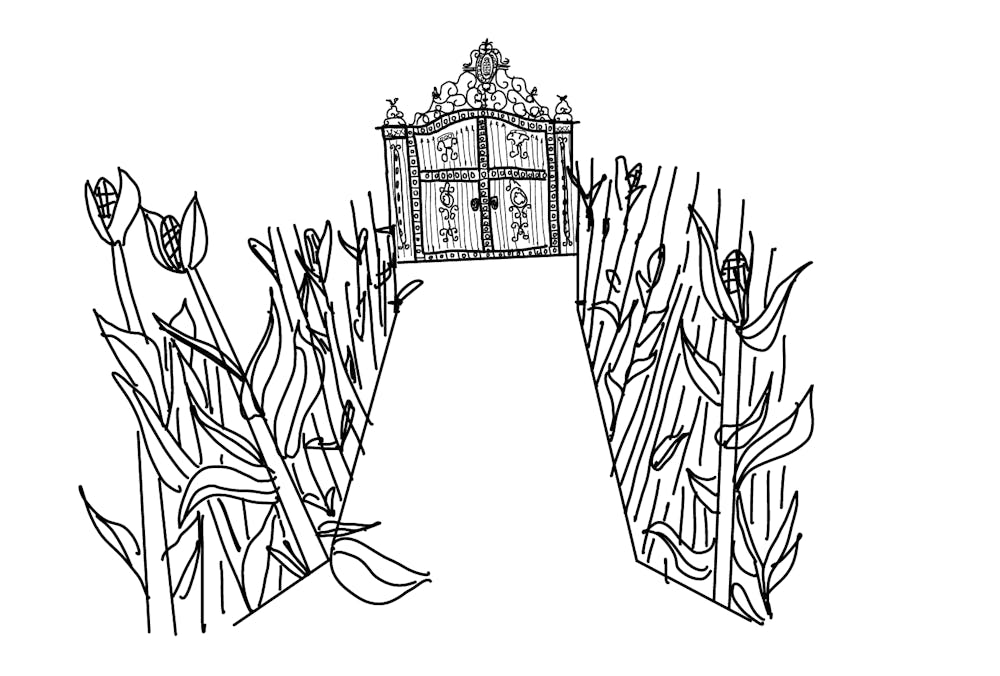A new student group, Rural Students at Brown, aims to foster a safe space for rural students admitted to the University.
Spearheaded by Abby Bachenberg ’23 of Welcome, Minnesota; Toby Arment ’23 of Rawlins, Wyoming; Victoria Rose ’23 of Hillsboro, West Virginia and Jed Fox ’23 of Schoharie, New York, director of technology at The Herald, the organization hopes to be recognized as an official club by the Student Activities Office for the fall semester, according to Rose and Bachenberg.
Bachenberg and Rose explained that the new organization would fulfill a need for community among the University’s rural students. The group also plans to offer support for rural students outside College Hill, such as teaching rural high school students about “not just recruiting for Brown, but also college generally,” Rose added.
Bachenberg said that over 50 people have indicated an interest in joining the club.
She explained that she thinks there are “about 200 people who are actually rural at Brown,” so the founders were “really excited” to see lots of interest.
Both Rose and Bachenberg said that finding other rural students on campus was not a challenge because they were members of the Brown Band, a group that has attracted significant numbers of rural students, according to both students. Rose stressed that “if it wasn’t for that weird coincidence, I think it would be really really difficult” to find other rural students.
Rose added that one of the goals of the organization is to raise awareness of rural student experiences, especially in the classroom, and to increase faculty awareness of rural communities in their lesson plans.
The idea for the group, Bachenberg and Rose said, originally came from Libbi Rogan ’21.5, who worked to create a similar organization before the COVID-19 pandemic made it too difficult to sustain alongside her other rural outreach on campus, including her collaboration with the Office of Admissions on its fly-in program.
The founders of the new organization — all of whom knew Rogan through the Brown Band — heard about her efforts and decided to create “a space where rural students can get to know each other” and “share advice and resources that have helped,” Rose said.
Bachenberg proposed a “pre-orientation for admitted (rural) students” as a possible event the organization will support, but reiterated that the club’s main purpose is to serve as a more casual, community-oriented “space where people can hang out and talk to each other.”
Rose noted that the organization is also “currently in communications with the admissions office” about collaborating on the University’s fly-in program for rural students.
Bachenberg and Rose explained that the founders are open to input from the club’s members in deciding the direction of the club. “Where it goes from (the start) will really be up to the members and what they want,” Bachenberg said.
She noted that the group has its “application to become a club submitted” and is “just waiting to hear back from SAO” before they plan for the next semester.
Colby Johnson ’24, a rural student from Campbell’s Creek, West Virginia who filled out the interest form for the group, said he was happy to hear about the organization’s formation.
“It is still so essential for rural students to have a place, no matter the amount of people who show up,” he said. “It just felt really nice to feel like there was something on campus for students like me.”
Johnson stressed that he does not “want this to be a club just to be a club” and instead wants “this club to start encouraging rural students to reach out” and “take up space.”
“The most important thing is that a club (alone) will not fix anything,” he said. “It takes students joining, it takes students participating, it takes rural students stepping up to the plate again.”
Rose noted a lack of awareness about the experience of rural life as a large problem on campus, saying that “no one really got it at all” when she attempted to talk about her experiences in a public transportation seminar where “half of the class was from Boston or Connecticut.”
“Everyone at Brown, pretty much, is from a city or a suburban area,” she said. “I have taken RIPTA successfully, like, twice and I’m still terrified of it.”
Bachenberg said the University “didn’t really support” her transition from a rural environment to an urban one.
“It’s just kind of a culture shock,” she explained. “I never really got connected to other rural students at Brown.”
Although Bachenberg has felt “pretty supported” at the University, “it’s not really by the administration per se,” she added. “The amount of rural students is so small that it’s not something that anyone knows to think about.”
Johnson recently wrote an op-ed in The Herald that discussed his negative experiences with other students surrounding his rural background, encouraged non-rural students not to “perpetuate stereotypes” and called for the formation of a “rural students collective.”
He said he has since received messages from “15 to 20” students ” who “have quite literally come out of the closet as rural students.”
“Rural students experience a lot of the same things and educational differences that other marginalized groups do as well,” he said — but there hadn’t been any official community for them previously.
“It’s really easy to feel alone here,” he explained. “What I’m hoping to get out of it is to really connect to other rural students on campus.”
Speaking directly to rural students, Johnson said that they need to let go of “the internalized biases” and “accept your differences as a vital part of your contributions.”
“I hope the one thing this club does is to really let rural students know that there’s a community supporting them,” he added. “There is another group behind them, waiting for them, cheering them on. … This is just one step into making sure rural students are actually welcome here on campus.”
Jack Tajmajer was a Metro editor at The Herald.





